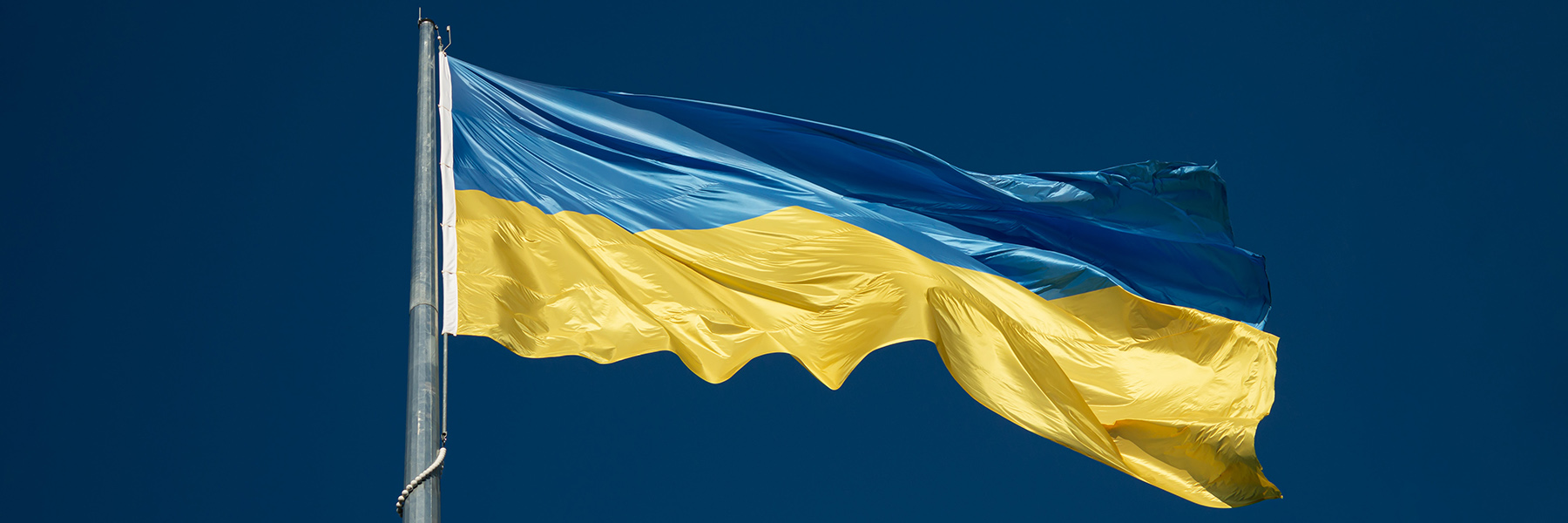A YSpace venture is using its innovative telehealth technology to pair Canadian health care expertise to local doctors in Ukraine.
When the Ukraine conflict made headlines throughout the world, ROSe Telehealth, a scale-up company based in British Columbia that provides critical health expertise to general physicians in remote and rural locations, acted quickly. ROSe Telehealth worked to provide instant access to specialized health care and support to health-care workers on the front lines of the Ukraine with help from YSpace at York University.
Dr. Don Burke, MD, an intensivist, infectious disease specialist and one of the cofounders of ROSe Telehealth, went to Ukraine to provide humanitarian support. ROSe Telehealth, which has seen an increase in reliance from patients due to the COVID-19 pandemic, bridges the gap between virtual consultation and in-person aid with critical care. It is an all-in-one, single-click service that connects local doctors with specialized medical expertise in real-time.
It is a service direly needed in Ukraine, where doctors are limited in the type of specialized care they can provide and have tenuous connections with the outside world. “ROSe Telehealth has so much to offer others. York University and YSpace have accelerated our potential to address crises, and the positive effect will be felt globally,” said Burke.
Neil Cesario, information systems manager at ROSe, noted that ROSe’s design was developed to accommodate lower bandwidth connections, while still providing important tools for physicians and specialists to collaborate, an important consideration in Ukraine given concerns around cybersecurity and unreliability of the internet.
Despite solutions to protect user privacy, there are many precautions to be taken when communicating in Ukraine. “When I first entered Ukraine, I was asked by a cyber security expert there (from the U.S.) to remove Zoom from all my devices for two reasons: cyber security risk, and bandwidth issues,” said Burke.
With internet and wireless network control, Burke relied on the Wi-Fi he was provided within Ukraine, which is often slow and unreliable. However, ROSe’s platform is designed to support low bandwidth adaptation, scaling video and audio quality with bandwidth capacity.
“ROSe was welcomed, as it functioned well in a low bandwidth setting, and it did not pose the same security or privacy concerns,” Burke added. “It also showed us that the ROSe platform could be used anywhere, and in any scenario. It is incredible how, knowing that you have immediate backup from specialists, the ‘fear factor’ is considerably lowered. You are then able to perform your tasks with greater confidence and ability.”
In addition to providing a sophisticated communications platform, ROSe revolutionizes communication by including live transcriptions, writing tools, and sharing images of ultrasounds. Cesario says: “Zoom or Skype [are] just business tools. ROSe telehealth is actually a health tool.”
With the crisis in Ukraine, ROSe Telehealth has come fully prepared to bridge the gap between physician aid and specialist intervention.

David Kwok, associate director of entrepreneurship at YSpace, was approached by Cesario and his team when they first started to tackle this issue of reliability and accessibility for critical care. Cesario believed that YSpace could provide access to the network necessary for ROSe to build its team of specialists and directors.
As York University’s innovation hub for startups and entrepreneurs, YSpace is home to innovative changemakers who are driving positive change in their local and global communities. York’s enduring commitment to innovation and research is bringing extraordinary solutions to complex worldwide health challenges.
Cesario notes the importance of YSpace in building up ROSe telehealth as a startup: “It takes a village, YSpace provided that village, that community. Galen Udell, program advisor at YSpace, has been excellent in guiding us. Without his mentorship we would just be another startup.”
“YSpace is proud to be supporting ventures like ROSe Telehealth that drives a direct impact into the communities, serving people not just across Canada but helping the global community as their technology scales. ROSe has engaged with YSpace actively over the past year to capitalize on the mentorship and curated venture support, designed to help bring the founders’ mission of bridging healthcare access into fruition,” says Kwok.
The tools and expertise which ROSe Telehealth provides to physicians will continue to be important long after the COVID-19 pandemic, the Ukraine-Russia conflict, and other humanitarian crises. With the rising demand in telehealth services, this industry may become deeply embedded in the future of health care.


